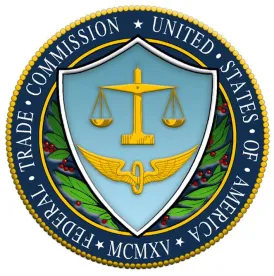The FTC recently announced a Notice of Proposed Rulemaking (NPRM) aimed at curbing deceptive consumer reviews and endorsements. The NPRM primarily aims to expand the Commission’s ability to seek civil penalties against businesses using false and misleading reviews online, which the FTC maintains can cause significant harm to consumers and competitors.
Among other things, the proposed rule would prohibit businesses from:
Writing or selling consumer reviews attributable to nonexistent individuals, non-purchasers, or individuals that misrepresent their experiences with a product or service;
Procuring or disseminating such reviews if the business knows or should have known that they were fake;
Repurposing reviews for separate, substantially different products (“review hijacking”);
Buying positive or negative reviews;
Writing or disseminating reviews by individuals connected to the business without disclosing their relationships;
Creating or controlling “independent” websites that review the business’ products or services;
Using unsupported legal threats, intimidation, or false accusations to suppress negative consumer reviews;
Misrepresenting that a website includes all reviews submitted if negative reviews have been suppressed; and
Selling or purchasing fake social media indicators, such as fake followers or views.
In its announcement, the FTC highlighted the Supreme Court’s 2021 decision in AMG Capital Mgmt., LLC v. FTC, which curtailed the Commission’s authority to obtain equitable monetary relief under Section 5 of the FTC Act. However, the AMG Capital Mgmt. decision has not completely barred the FTC from pursuing monetary relief for allegedly fake consumer reviews. As we previously reported, the FTC announced a $1.7 million settlement in May 2023 with real estate celebrities Scott Yancey, star of Flipping Vegas on A&E, and Dean R. Graziosi, author of Millionaire Success Habits, arising out of the defendants’ allegedly deceptive efforts to promote real estate investment training programs and bury online consumer reviews complaining that the programs were a scam.
This NPRM follows the advance notice of proposed rulemaking announced last October, and it was drafted based on public comments submitted by consumers, business groups, advocacy organizations, and researchers. The NPRM also follows the recent publication of the FTC’s revised Endorsement Guides, which contain a number of updates to the agency’s 2009 version, including an expanded definition of “Endorser” and a new definition for “clear and conspicuous” disclosures.
The NPRM was approved by the Commission with a 3-0 vote. Comments are due within 60 days after the NPRM is published in the Federal Register.





 />i
/>i
